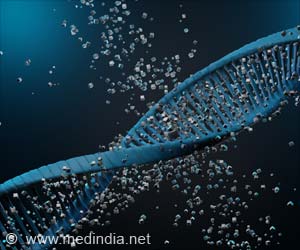Immune system cells in the blood of patients with breast cancer undergo alterations early in the disease course, which may contribute to the early identification of aggressive tumors and help enhance personalized immunotherapy strategies in the future.

Monocytes are the largest blood cells and account for approximately 7% of leukocytes. They are important immune cells, patrolling the body in search of potential threats such as viruses, bacteria, and tumor cells. They are produced in the bone marrow and travel in the bloodstream to other tissues where they differentiate into macrophages (cells that engulf and destroy pathogens and apoptotic cells) or dendritic cells (cells that process antigen material and present it on the cell surface to the immune system structures that produce specific antibodies).
In this study, the researchers collected monocytes from the blood of breast cancer patients and tried to differentiate them in the laboratory into pro-inflammatory macrophages, which tell the immune system to send reinforcements to the tumor site. Monocytes were collected from 44 blood samples donated by breast cancer patients treated in France and at Pérola Byington Hospital in Brazil, as well as 25 samples from healthy individuals who served as controls.
"We used a cocktail of cytokines [signaling proteins that modulate the immune system] to try to induce monocytes to differentiate into pro-inflammatory macrophages. In theory, this type of cell is supposed to tell the organism it has a tumor and eliminate it," Ramos said. "However, the monocytes failed to perform this role in approximately 40% of the patients and displayed a very similar profile to that of the intratumoral macrophages associated with an adverse outcome."
The researchers then analyzed monocyte gene expression to determine which messenger RNAs the cells were producing. The analysis identified alterations to several signaling pathways, even in patients whose cells differentiated into macrophages as they should in healthy subjects.
"This confirms that breast cancer isn't just a local disease. It doesn't affect only the breast but affects all cells systemically. The defense cells are already altered when they enter the bloodstream," Barbuto told.
Advertisement
According to Ramos, cancer can develop slowly over a period of years. "If we could detect monocyte alteration early on when there are no signs of the disease, it might be possible to prescribe more tests to determine if something is wrong," he said.















